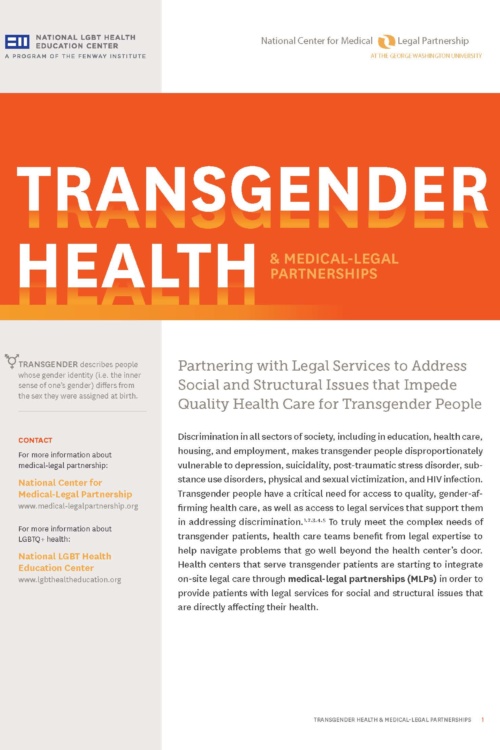
Fact sheet: Transgender health and medical-legal partnerships
Thursday, August 9, 2018
Download fact sheet, "Transgender Health and Medical-Legal Partnerships"
Discrimination in all sectors of society, including in education, health care, housing, and employment, makes transgender people disproportionately vulnerable to depression, suicidality, post-traumatic stress disorder, substance use disorders, physical and sexual victimization, and HIV infection. Transgender people have a critical need for access to quality, gender-affirming health care, as well as access to legal services that support them in addressing discrimination. To truly meet the complex needs of transgender patients, health care teams benefit from legal expertise to help navigate problems that go well beyond the health center’s door. Health centers that serve transgender patients are starting to integrate on-site legal care through medical-legal partnerships in order to provide patients with legal services for social and structural issues that are directly affecting their health.
This fact sheet describes common social and legal needs that affect the health of transgender individuals, and ways integrated legal services can help meet those needs. It examines medical-legal partnership programs at three health care organizations and how they operate, and it shares stories of people benefiting from medical-legal partnership services.
